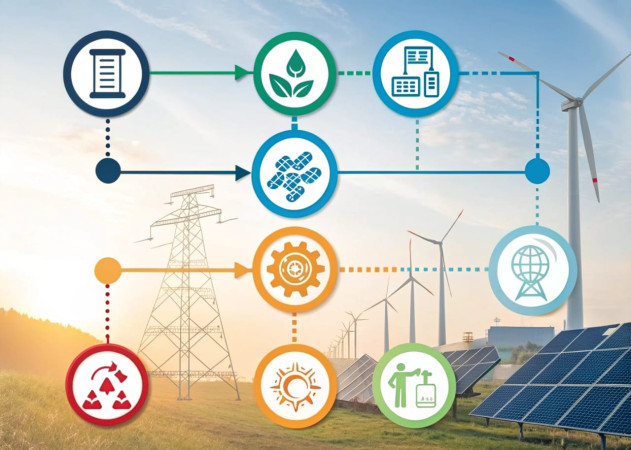
Follow India Renewable Energy News on WhatsApp for exclusive updates on clean energy news and insights
UK Government Proposes Gas Shipper Obligation to Fund Low-Carbon Hydrogen Production
Feb 01, 2025
The UK government has introduced a Gas Shipper Obligation (GSO) as a funding model for low-carbon hydrogen production, launching a stakeholder consultation to refine the proposal. The GSO aims to bridge the cost gap between low-carbon and conventional fuels, encouraging investment and ensuring a secure hydrogen supply.
Key Aspects of the Proposal
- Levy on Gas Shippers: A volumetric charge on licensed gas shippers in Great Britain, with potential expansion to Northern Ireland. This mirrors Contracts for Difference (CfD) and the Green Gas Support Scheme (GGSS).
- Supporting Hydrogen Production Business Model (HPBM): Funds from the GSO will support revenue guarantees for early low-carbon hydrogen projects and potentially finance transport & storage infrastructure.
- Volumetric Design: Charges will be based on the quantity of gas shipped, ensuring fair cost distribution compared to a flat meter point levy.
- Monthly Collection & Contingency Funds: Regular collections align with HPBM payments, while a contingency buffer mitigates financial risks due to fluctuations in gas prices and sales volumes.
- Exemptions Considered: Certain Gas-Intensive Industries (GIIs) and CCUS-enabled hydrogen producers may qualify for exemptions to prevent carbon leakage and maintain industrial competitiveness.
Opportunities & Benefits
- Investment in Green Hydrogen: Encourages private sector participation in low-carbon hydrogen.
- Energy Security & Stability: Reduces reliance on volatile fossil fuel imports, strengthening domestic supply chains.
- System-wide Benefits: Hydrogen can provide long-duration energy storage and lower network constraint costs.
Challenges & Considerations
- Cost Pass-Through Uncertainty: Market dynamics will influence how much of the levy is passed on to consumers.
- Managing Exemptions: Balancing competitiveness while avoiding loopholes is crucial.
- Operational Complexity: Administering the GSO requires data collection, invoice tracking, and compliance enforcement, necessitating efficient inter-agency coordination.
The consultation period runs until April 2025, allowing stakeholders to provide feedback on the GSO’s design, implementation, and impact on the hydrogen economy.